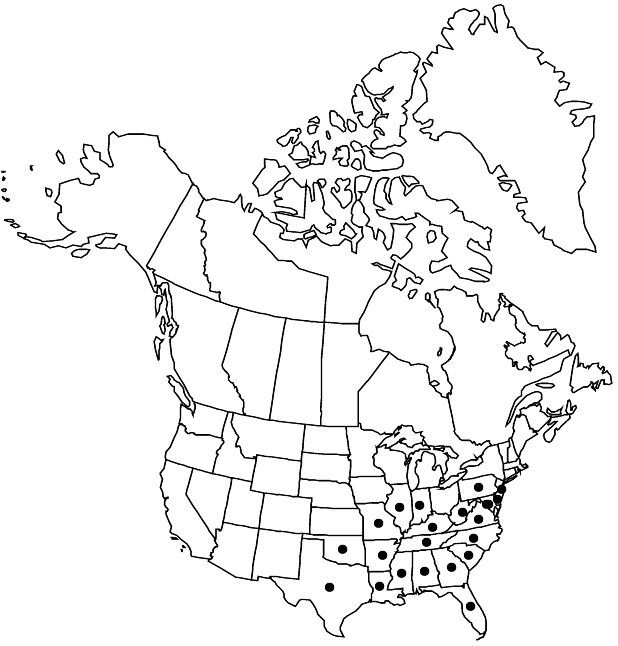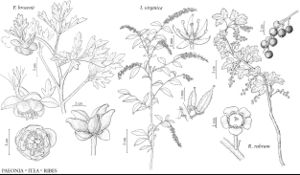Itea virginica
Sp. Pl. 1: 199. 1753 ,.
Shrubs 1–3 m. Stems erect or arching, forming clumps by underground runners, glabrous or sparsely pubescent. Leaves: petiole 3–10 mm; blade elliptic to oblong-oblanceolate, 2–9 × 1–4 cm, margins glandular-serrate to serrulate or minutely denticulate. Racemes arching, 20–80-flowered, 4–15 cm, rachis puberulent. Pedicels 1–3.5 mm, puberulent. Flowers: sepals erect or slightly divergent, narrowly oblong, 0.6–1 mm, apex acute; petals narrowly oblong, 3.5–6 mm; filaments 1–2 mm, pubescent; styles longitudinally grooved. Capsules ± reflexed, cylindric, 0.7–1 cm, styles persistent, pubescent. Seeds 1–1.4 × 0.4–0.9 mm, smooth, shiny. 2n = 22.
Phenology: Flowering Mar–Jun.
Habitat: Swamps, wet woods, stream banks, streamheads, beaver ponds
Elevation: 0-300 m
Distribution

Ala., Ark., Del., D.C., Fla., Ga., Ill., Ind., Ky., La., Md., Miss., Mo., N.J., N.C., Okla., Pa., S.C., Tenn., Tex., Va., W.Va.
Discussion
Itea virginica is widely cultivated for its showy inflorescences, fragrant flowers, and colorful fall foliage.
Selected References
None.
